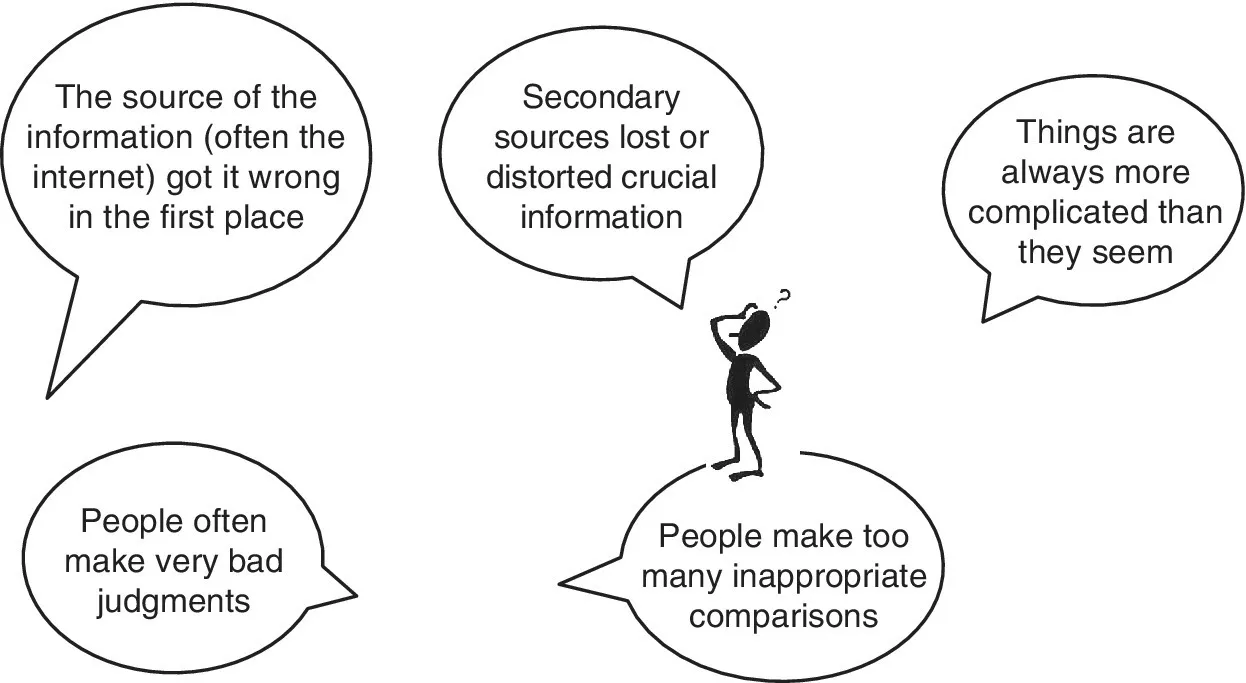
This is a test
- English
- ePUB (mobile friendly)
- Available on iOS & Android
eBook - ePub
Book details
Book preview
Table of contents
Citations
About This Book
All in the Mind: Psychology for the Curious, Third Edition covers important, topical, and sometimes controversial subjects in the field of Psychology in an engaging alternative or supplement to traditional student textbooks. The third edition of a successful and uniquely readable textbook – includes more than two thirds brand new material, with all retained material thoroughly revised and updated. All in the Mind, 3rd Edition offers a new and engaging way to consider key theories and approaches in psychology; providing an original alternative or supplement to traditional teaching textbooks.
Frequently asked questions
At the moment all of our mobile-responsive ePub books are available to download via the app. Most of our PDFs are also available to download and we're working on making the final remaining ones downloadable now. Learn more here.
Both plans give you full access to the library and all of Perlego’s features. The only differences are the price and subscription period: With the annual plan you’ll save around 30% compared to 12 months on the monthly plan.
We are an online textbook subscription service, where you can get access to an entire online library for less than the price of a single book per month. With over 1 million books across 1000+ topics, we’ve got you covered! Learn more here.
Look out for the read-aloud symbol on your next book to see if you can listen to it. The read-aloud tool reads text aloud for you, highlighting the text as it is being read. You can pause it, speed it up and slow it down. Learn more here.
Yes, you can access All in the Mind by Adrian Furnham, Dimitrios Tsivrikos in PDF and/or ePUB format, as well as other popular books in Psychology & Applied Psychology. We have over one million books available in our catalogue for you to explore.
Information
1
Introduction: Public Beliefs About Psychology
1.1 Introduction
Psychology is a new science – barely 140 years old. It has an official “birth date” of the 1880s in Germany. With new methods and discoveries we understand more and more about such things as how the brain operates, why people behave the way they do, and the causes of human unhappiness. In fact psychology looks as if it is on the edge of some great discoveries thanks to developments in neuroscience, statistics, and data gathering.
What people who study psychology often say is that it gives you an “aha” experience. “Aha” is the expression of surprised happiness that comes with insight. “Aha” experiences often occur when psychology can offer explanations for seemingly bizarre or irrational behavior: why people spend money when depressed; why anorexics starve themselves; why clever people make such bad decisions.
Psychology provides a rich vocabulary through which it can describe and explain behavior. Psychological terms like passive‐aggressive, obsessive‐compulsive, and self‐actualization are part of many individuals’ vocabulary.
There is a joke about “psychobabble,” which is the misuse or overuse of psychological language and concepts, but this usually occurs only in the popular press and by non‐psychologists. Some psychological theories are counterintuitive – that is, a number of the theories are not what common sense suggests. Some theories are quite commonsensical but there are also several that are not. Nevertheless, many skeptics and some cynics have continued to maintain that all the findings in psychology are really only a form of common sense.
One way to discover the reality of human nature is, according to most psychologists, through scientific experimentation and observation, but lay people do not use scientific evidence when forming their ideas about their fellows. Many believe in superstitions and old wives’ tales that have been perpetuated, but never tested, over the generations.
1.2 Public Ignorance About Psychology
It is paradoxical that, with so much media attention on psychological issues, the general public remains so ignorant about a topic. Certainly they seem unable to independently evaluate claims about many pseudo‐scientific pursuits like graphology, psychic surgery, subliminal advertising, and the like. So many myths of popular psychology are held by people despite considerable evidence to the contrary. These include: “It is better to express anger than hold it in”; “Low self‐esteem is the cause of nearly all psychological problems”; “People of opposite personality type are attracted to one another.”
Fortunately there is evidence that if people take courses in psychology they become less likely to hold myths and misconceptions and more critical and skeptical in their thinking (Kowalski & Taylor, 2009; Standing & Huber, 2003).
Many studies have looked at very specific areas to try to understand why people have so many misconceptions. Thus Aamodt (2008) looked at criminal psychology and came to the conclusion that myths were held for various specific reasons.

Figure 1.1 Possible reasons for holding myths.
There are three reasons for public ignorance:
- Media The media often favors sensationalistic rather than factual reporting of science. Further, the media has a “let all flowers bloom” and “anything goes” philosophy aimed at entertainment, not education.
- Pseudo‐science A lot of pseudo and bogus science is behind multi‐million dollar industries that depend on keeping the public poorly informed about their claims and the fact that they may have been shown to be fraudulent.
- Psychologists When appearing in the media, they are persuaded to favor “sexy soundbites” rather than useful explanations. If they insist on the latter they tend to be edited out of the transmission.
Thus the lay person is presented with confused, contradictory, exaggerated, incomplete, and naïve findings and theories. It is no wonder that some believe that psychology is either just common sense or a matter of opinion.
Stop a hundred people in the street and ask them to name all the psychologists they have ever heard of. The likelihood is that 90% will nominate Freud and about a third Jung. Asked if they can name a living psychologist, only about 5% probably can. This galls modern psychologists because although many are impressed by Freud’s insights, intuition, and learning, they see little development in psychoanalysis and are skeptical about total reliance on clinical interviews. More importantly, many have no truck with the pretentiousness of a field that shuns empirical disconfirmation.
Many people cannot distinguish between a psychologist, a psychiatrist, a psychoanalyst or a psychiatric social worker. Some use the work “shrink” or “head doctor” or even “psycho‐the‐rapist” (Gadon & Johnson, 2009).
Psychology is an amazingly diverse discipline. So diverse that any two psychologists have almost nothing in common. Psychology is an archipelago, not an island. And some think it is drifting apart near to collapse.
Developmental psychologists may join educational departments; social and organizational psychologists may be happier in business schools; physiological psychologists could happily work in a biology department; and even clinical psychologists could be embraced by psychiatrists. This makes things difficult for the lay person, who often thinks psychology is little more than clinical psychology or a discipline whose primary aim is to help people.
Many disciplines study human behavior – sociology, economics, anthropology, history, and so forth – but what makes psychology unique is its scope and methodology. Psychology studies the full range of human (and non‐human) behavior from the micro to the macro level.
Second, psychologists use scientific methodology to test their theories. It is the data‐based scientific study of behavior (see Figure 1.1). It is a young science and the record of progress is mixed. As Stanovich (1998, p. 21) notes, psychology is an immensely diverse discipline covering a range of subjects that are not tied together by common content. Instead, what unifies the discipline is that it uses scientific methods to understand behavior. The scientific method is not a strict set of rules; instead it is defined by some very general principles. Three of the most important are shown in Figure 1.2.

Figure 1.2 General principles of science.
Psychology still has an image problem for various reasons (Stanovich, 1998). These include:
- Guilt by association. Because psychologists have been interested in testing claims in various pseudo‐sciences (clairvoyance, psychic surgery), psychology has been associated with them! Psychologists are in a trap: If they refuse to investigate certain problems for fear of being confused with them, they are not true scientists. But if they research issues dispassionately and show pseudo‐scientists to be writing nonsense, this association may be seen as confirmation that psychology itself is a pseudo‐science.
- Self‐help books that commercialize psychotherapy create an inaccurate impression of the aims, methods, and knowledge in psychology. These books are characterized by unrepresentative but vivid case studies, endorsements, and miraculous personal testimonies. Further, they propagate “recipe” knowledge – they show how to follow various steps without explaining why they should work.
- Media psychologists are self‐selected, have a poor reputation with academic peers...
Table of contents
- Cover
- Title Page
- Table of Contents
- Chapter Descriptions
- Preface to the Third Edition
- Acknowledgments
- Some Quirky Quotes About Psychology
- 1 Introduction
- 2 “Untangling” Myths and Psychological Realities
- 3 The Names and Dates That Shaped Psychology’s History and Development
- 4 Science, Pseudo‐Science, and Conspiracy Theories
- 5 The Man Called Freud
- 6 A Guide Into Abnormal Psychology
- 7 Psychology and Work
- 8 Do Looks Matter?
- 9 Judging and Nudging
- 10 A Psychologist in the Marketplace
- References
- Further Reading
- Index
- End User License Agreement